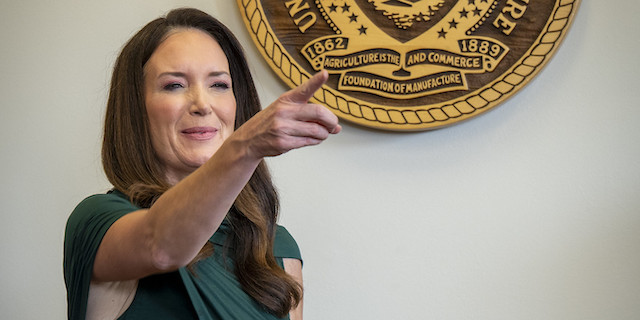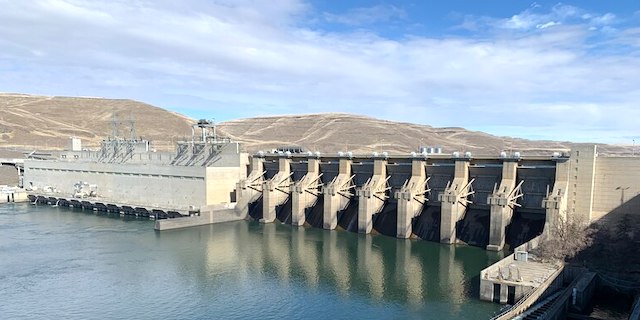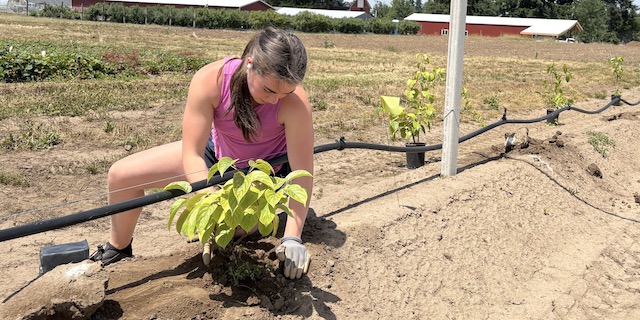Western Innovator: Hemp advocate advises caution
Published 1:30 pm Friday, December 20, 2019

- Bonny Jo Peterson, founder and director of the Industrial Hemp Association of Washington, says many growers are reducing the amount of hemp they will plant.
OLYMPIA — No one can accuse Washington hemp advocate Bonny Jo Peterson of being pollyannaish.
As founder and director of the Industrial Hemp Association of Washington, she said that she knows she should be “rah-rah hemp.” Nevertheless, she talks more about the risks of hemp.
“If you like to make money, don’t get into hemp right now,” Peterson said.
Crop’s rebirth
Peterson’s dark assessment of the state of the hemp industry comes during the plant’s rebirth. Unshackled, partly, from federal restrictions, hemp took off in 2019. The advocacy group Vote Hemp reports 511,442 acres of hemp were licensed nationwide this year, up 455% from the year before.
Peterson warns, however, about losing one’s head in the hemp rush. Sure, some people will make money, she said, but others will lose cash searching for that vein of hemp.
Don’t plant too much, don’t plant without a buyer and don’t think hemp will save the farm, she said during an interview in a coffee shop. The cups and saucers rattled with each “don’t.”
“You can put in there she was pounding her fist on the table,” she said.
Family ties
Peterson, 46, traces her passion for hemp to farmers on her father’s side of the family who grew the crop in Illinois during World War II. The U.S. Department of Agriculture promoted growing hemp for military uses, such as rope, boots and parachutes.
“I’ve been hearing about hemp all my life,” she said.
Peterson said she waited decades for hemp to again become legal. The 2014 Farm Bill authorized states to license hemp farmers to do “research.” In 2017, Peterson applied for a research license, but learned the Washington State Department of Agriculture had suspended the program because of a budget shortfall.
Hemp association
That’s when Peterson founded the Industrial Hemp Association. She lobbied state legislators to finance the program until there were enough fee-paying hemp growers to support it. She also became a source of information for people mystified by the twists that hemp policy takes.
“She cares very greatly about Washington state getting off on the right foot,” said Robert Cook of the Columbia Valley Hemp Co., which grew 20 acres of hemp in the Tri-Cities. “She is very candid.”
Peterson said she’s never made any money directing the association, though she said she hopes to someday. The association plans to become for the first time a dues-paying organization Jan. 1.
The association has about 500 members, Peterson said, but all they’ve had to do was join online for free. The board of directors has yet to set the dues, she said.
As is her association, the hemp industry is still taking shape, Peterson said. “I’m stuck between ‘rah-rah for hemp’ and supporting hemp and at the same time making people understand the risks,” she said.
Multiple problems
The risks are many, said Addison Pettit, who with two partners planted 300 acres of hemp in Pasco this year for hemp’s hottest product, cannabidiol, or CBD.
An early October frost wrecked 100 acres. Pettit said he had buyers for the rest of the crop, but they backed out.
So the 2019 crop is being stored. Pettit said he still hopes to sell it, but prices have dropped sharply and he’s not sure he could sell the harvested plants at any price right now. “It’s a very opaque marketplace,” he said.
“I would urge people to have patience and rationality,” he said. “I really don’t recommend speculatively producing. You need someone sitting in front of you willing to buy it and who is sincere.”
CBD drives boom
The hemp boom has been based on demand for CBD. The Food and Drug Administration approved CBD as a prescription drug to treat two rare and severe forms of epilepsy, but it issued an advisory in November warning consumers that CBD has not been proven safe for unsupervised consumption.
Hemp seeds can be consumed. The network to process and distribute hemp for other non-food purposes, such as clothing or building materials, has not yet developed, Peterson said.
Farming basics such as crop protection also haven’t firmed up. The Environmental Protection Agency recently took comments on applications to label 10 pesticide products for hemp. The American Farm Bureau commented that “hemp growers remain without vital crop protection tools needed to improve crop quality and maximize yield.”
The USDA’s interim hemp rules also could present a problem. Beginning next year, the rules will change for testing whether a field of hemp has too much THC, the psychoactive chemical in marijuana.
Instead of the entire plant, only the top part of the plant will be tested, and that’s the part most likely to have too much THC. If a plant tests over the THC limit, the entire field has to be destroyed.
Farmers who don’t plant hemp varieties naturally low in THC will risk losing their crops, Peterson said. “I’m really tempted to tell people not to plant.”
Occupation: Founder and executive director of Industrial Hemp Association of Washington
Age: 46
Residence: Tacoma, Wash.
Education: Associate degrees from Pierce College in communications, geology and early childhood education






